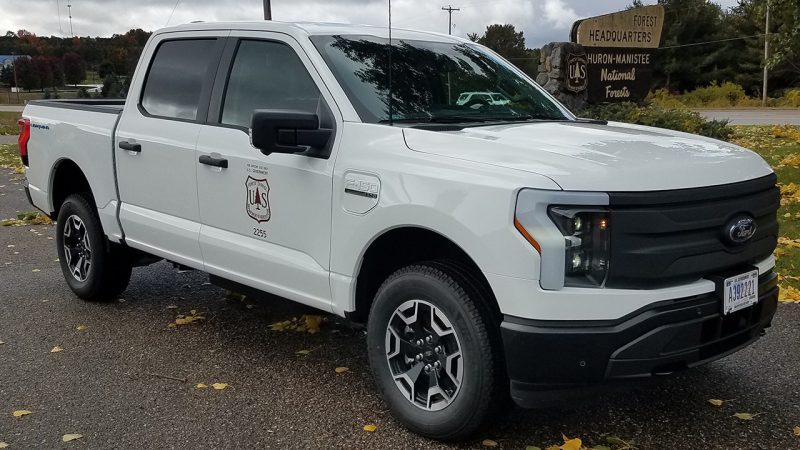
House Republican blasts US Forest Service for pushing ‘shortsighted’ EV transition: ‘pandering to the left’
EXCLUSIVE: The top GOP member of the House Natural Resources Committee slammed the U.S. Forest Service for its plan to transition to an electrified vehicle fleet as part of the federal government’s climate agenda.
‘I’ve always supported renewable energy solutions, but they have to actually work and not just virtue signal at the expense of the American taxpayer,’ Rep. Bruce Westerman, R-Ark., told Fox News Digital. ‘The Forest Service turning to EVs is the perfect example of the latter.’
Earlier this month, the Forest Service – a Department of Agriculture subagency tasked with managing nearly 200 million acres of forests and grasslands – announced a pilot program to test three Ford F-150 Lightning electric trucks at three locations in Pennsylvania, Michigan and New Hampshire. The program was crafted to study whether the agency would be able to green-light a broader transition to electric vehicles (EV) and reduce its carbon footprint.
‘The Forest Service is always looking for ways to make our fleet more sustainable and are committed to reduce agency greenhouse gas emissions through innovation,’ a spokesperson for the agency told Fox News Digital.
While the pilot program will test how capable the EVs are for performing in areas where Forest Service personnel work, President Biden signed an executive order last year requiring that all new light-duty federal vehicle purchases are zero-emissions beginning in 2027.
Westerman, though, said the EV mandate was problematic because Forest Service vehicles are required to perform in extreme temperatures and with heavy loads.
‘EVs have made great strides in recent years, but they’re still built for highways and nowhere near capable of operating in extreme temperatures, navigating uneven terrain, towing heavy loads, or fulfilling any of the Forest Service’s other numerous responsibilities,’ Westerman continued.
‘This, coupled with the fact that no infrastructure exists to charge these vehicles in the field, makes this decision extremely shortsighted,’ he added.
The F-150 Lightning is capable of towing a maximum 10,000 pounds and carrying a maximum payload of 2,000 pounds, according to CarsDirect. By comparison a traditional engine F-150 can tow 14,000 pounds and carry 3,325 pounds.
The F-150 Lightning also has a maximum range of between 240 and 320 miles compared to the traditional model’s range of up to 700 miles, according to Car and Driver. Depending on the payload and towing load, a vehicle’s range can significantly decline.
Cold weather can also have a major impact on EV performance, according to Consumer Reports. Driving in cold weather can lead to a range reduction of up to 50%.
And Ford recently hiked the price of the cheapest F-150 Lightning to $56,000 while the cheapest traditional model is about $34,000.
‘This Forest Service is used to fielding new technology in remote and rugged locations,’ the Forest Service spokesperson said. ‘This first ever study, using electric trucks on National Forests for field use is what the pilot program is all about – matching the right tool for the right job.’
‘Since our operating conditions can vary a great deal, we stay flexible on the tools we use – to this day we still using pack animals and horses for project work when necessary,’ the spokesperson added.
They noted the program would be a ‘learning experience’ and would help the agency identify barriers and benefits of the program.
In addition, across its more than 170 locations, the Forest Service has just 32 charging ports for EVs. Just one is powered by a renewable energy source.
Westerman, who is set to chair the House Natural Resources Committee when Republicans take control of the House next year, argued that the agency should focus on improving the health of the nation’s forests and trees before spending taxpayer money on EVs.
The Arkansas Republican introduced bipartisan legislation in June that would prioritize ‘scientific forest management activities’ to prevent massive wildfires.
‘The Forest Service of all agencies should recognize that they already have nature’s most efficient carbon capture devices right at their fingertips: trees!’ Westerman added.
‘Instead of pandering to the left and spending taxpayer dollars on experimental vehicles, they should be focusing their resources on improving the health of American forests and mitigating catastrophic wildfires, which emit far more carbon than any truck ever could,’ he said.
